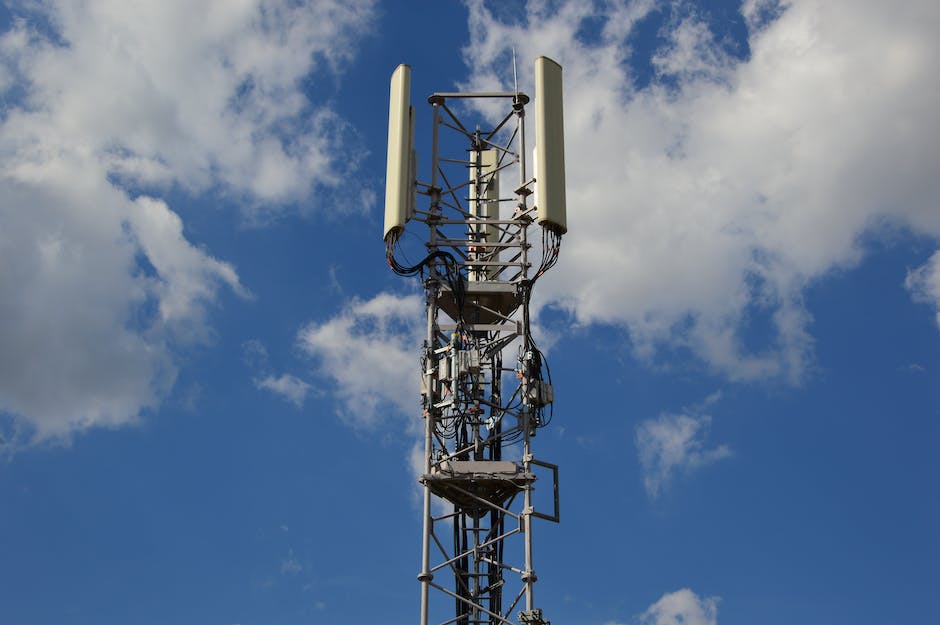Table of Contents
“5G: Empowering Future Leaders with Unprecedented Connectivity and Innovation.”
Introduction
Introduction:
The advent of 5G technology has brought about significant implications for future leadership. As the fifth generation of wireless technology, 5G promises to revolutionize various industries and transform the way we live and work. With its unprecedented speed, low latency, and massive connectivity, 5G opens up a world of possibilities for leaders to innovate, collaborate, and drive growth. This article explores the implications of 5G for future leadership, highlighting the potential benefits and challenges that leaders may face in harnessing the full potential of this transformative technology.
The Role of 5G in Transforming Business Operations

The Role of 5G in Transforming Business Operations
In today’s fast-paced and interconnected world, businesses are constantly seeking ways to stay ahead of the competition and improve their operations. One technology that has the potential to revolutionize the way businesses operate is 5G. With its lightning-fast speeds and low latency, 5G has the power to transform various aspects of business operations, from communication and collaboration to automation and data analysis.
One of the key areas where 5G can have a significant impact is in communication and collaboration. With 5G, businesses can expect faster and more reliable communication, enabling employees to connect and collaborate seamlessly, regardless of their location. This means that teams can work together in real-time, sharing information and making decisions more efficiently. Whether it’s a video conference with clients or a virtual meeting with remote employees, 5G can provide the necessary bandwidth and speed to ensure smooth and uninterrupted communication.
Furthermore, 5G can also enable businesses to embrace automation on a whole new level. With its low latency and high capacity, 5G can support the deployment of Internet of Things (IoT) devices and sensors, allowing businesses to automate various processes and tasks. For example, in a manufacturing setting, 5G can enable machines to communicate with each other in real-time, optimizing production and reducing downtime. This level of automation can lead to increased efficiency, cost savings, and improved overall productivity.
Another area where 5G can have a significant impact is in data analysis. With its high speeds, 5G can enable businesses to collect and analyze vast amounts of data in real-time. This means that businesses can make more informed decisions based on up-to-date information, leading to improved operational efficiency and better customer experiences. For example, in the retail industry, 5G can enable businesses to analyze customer data in real-time, allowing them to personalize marketing campaigns and offer targeted promotions. This level of data analysis can give businesses a competitive edge and help them stay ahead of the curve.
Moreover, 5G can also enable businesses to leverage emerging technologies such as augmented reality (AR) and virtual reality (VR). With its high speeds and low latency, 5G can provide the necessary bandwidth and responsiveness for immersive AR and VR experiences. This opens up new possibilities for businesses, from virtual meetings and training sessions to interactive product demonstrations and virtual showrooms. By embracing these technologies, businesses can enhance customer engagement, improve employee training, and create unique and memorable experiences.
In conclusion, 5G has the potential to transform various aspects of business operations. From communication and collaboration to automation and data analysis, 5G can enable businesses to operate more efficiently, make more informed decisions, and provide better experiences for their customers. As this technology continues to evolve and become more widespread, it is crucial for future leaders to understand its implications and embrace its potential. By harnessing the power of 5G, businesses can stay ahead of the competition and thrive in the digital age.
How 5G Technology is Revolutionizing Communication and Connectivity
5G technology is set to revolutionize communication and connectivity in ways that were previously unimaginable. With its lightning-fast speeds, low latency, and ability to connect a massive number of devices simultaneously, 5G is poised to transform industries and pave the way for new possibilities. This article will explore how 5G technology is changing the landscape of communication and connectivity, and the implications it has for future leadership.
One of the most significant advantages of 5G technology is its incredible speed. With speeds up to 100 times faster than 4G, 5G will enable users to download large files, stream high-definition videos, and engage in real-time communication without any lag. This increased speed will not only enhance the user experience but also open up new opportunities for businesses. For example, remote workers will be able to collaborate seamlessly with their colleagues, regardless of their location, leading to increased productivity and efficiency.
In addition to speed, 5G technology also boasts significantly lower latency compared to its predecessors. Latency refers to the time it takes for data to travel from one point to another. With 5G, latency is expected to be as low as one millisecond, which is imperceptible to humans. This near-instantaneous response time will enable applications that require real-time interaction, such as autonomous vehicles and remote surgeries. The implications of this low latency are vast, as it will not only improve the safety and efficiency of various industries but also create new business opportunities.
Furthermore, 5G technology has the capacity to connect a massive number of devices simultaneously. This capability, known as massive machine-type communications, will enable the Internet of Things (IoT) to reach its full potential. IoT refers to the network of interconnected devices that can communicate and share data with each other. With 5G, IoT devices will be able to transmit and receive data at unprecedented speeds, leading to the development of smart cities, autonomous factories, and intelligent transportation systems. This interconnectedness will require leaders to adapt and embrace new technologies to stay competitive in this rapidly evolving landscape.
The implications of 5G technology for future leadership are profound. As businesses and industries become increasingly reliant on 5G, leaders will need to understand its capabilities and leverage them to drive innovation and growth. They will need to be proactive in identifying opportunities that arise from this technology and be willing to invest in its implementation. Additionally, leaders will need to foster a culture of continuous learning and adaptability within their organizations to keep up with the rapid pace of technological advancements.
Moreover, leaders will need to navigate the ethical and privacy concerns that arise with the widespread adoption of 5G technology. As more devices become interconnected, the amount of data being generated and shared will increase exponentially. Leaders will need to ensure that data is collected and used responsibly, while also protecting the privacy and security of individuals. This will require a deep understanding of data governance and compliance regulations, as well as the ability to communicate and build trust with stakeholders.
In conclusion, 5G technology is set to revolutionize communication and connectivity in ways that will have far-reaching implications for future leadership. Its incredible speed, low latency, and ability to connect a massive number of devices simultaneously will open up new possibilities and transform industries. Leaders will need to embrace this technology, understand its capabilities, and navigate the ethical and privacy concerns that arise. By doing so, they can harness the power of 5G to drive innovation, growth, and create a better future.
The Potential Impact of 5G on Industries and Economic Growth
The advent of 5G technology has the potential to revolutionize industries and drive economic growth in unprecedented ways. As the next generation of wireless technology, 5G promises faster speeds, lower latency, and greater capacity, enabling a wide range of applications that were previously unimaginable. This article explores the potential impact of 5G on industries and economic growth, highlighting the opportunities and challenges that lie ahead.
One of the key areas where 5G is expected to have a transformative effect is in the Internet of Things (IoT). With its ability to connect a massive number of devices simultaneously, 5G will enable the seamless integration of IoT devices into various industries. This means that industries such as manufacturing, healthcare, transportation, and agriculture will be able to leverage the power of IoT to improve efficiency, reduce costs, and enhance productivity. For example, in manufacturing, 5G-enabled IoT devices can enable real-time monitoring of production lines, allowing for predictive maintenance and minimizing downtime.
Moreover, 5G is expected to drive innovation and growth in the autonomous vehicle industry. With its ultra-low latency and high reliability, 5G will enable real-time communication between vehicles, infrastructure, and pedestrians, making autonomous driving safer and more efficient. This has the potential to revolutionize transportation, reduce accidents, and improve traffic flow. Additionally, 5G can enable new services such as remote vehicle diagnostics and over-the-air software updates, further enhancing the user experience.
Another industry that stands to benefit greatly from 5G is healthcare. With its high-speed connectivity and low latency, 5G can enable remote patient monitoring, telemedicine, and virtual consultations. This means that patients in remote areas can access quality healthcare services without the need for physical travel. Furthermore, 5G can support the transmission of large medical data files, such as high-resolution images and videos, enabling faster and more accurate diagnoses. This has the potential to improve healthcare outcomes, reduce costs, and increase access to healthcare services.
In addition to these specific industries, 5G is expected to have a broader impact on economic growth. According to a report by Qualcomm, 5G is projected to contribute $13.2 trillion to global economic output by 2035. This growth will be driven by increased productivity, new business models, and the creation of new industries and jobs. For example, the deployment of 5G infrastructure will require significant investment, leading to job creation in the construction and telecommunications sectors. Furthermore, the increased connectivity and data speeds offered by 5G will enable the development of new services and applications, creating opportunities for entrepreneurs and startups.
However, the widespread adoption of 5G also presents challenges that need to be addressed. One of the main challenges is the need for robust cybersecurity measures. With the increased connectivity and data exchange enabled by 5G, the risk of cyberattacks and data breaches also increases. Therefore, it is crucial for organizations and governments to invest in cybersecurity infrastructure and develop stringent regulations to protect sensitive data.
In conclusion, the potential impact of 5G on industries and economic growth is immense. From enabling the seamless integration of IoT devices to revolutionizing transportation and healthcare, 5G has the power to transform various sectors. Moreover, the economic benefits of 5G are projected to be significant, with increased productivity, new business models, and job creation. However, it is important to address the challenges associated with 5G, particularly in terms of cybersecurity. By doing so, we can fully harness the potential of 5G and pave the way for a future of innovation and prosperity.
Exploring the Challenges and Opportunities of Leading in a 5G-Enabled World
5G and Its Implications for Future Leadership
Exploring the Challenges and Opportunities of Leading in a 5G-Enabled World
The advent of 5G technology has brought about a paradigm shift in the way we communicate and conduct business. With its lightning-fast speeds, low latency, and massive connectivity, 5G is set to revolutionize industries and transform the way we live and work. As we enter this new era of connectivity, it is crucial for leaders to understand the implications of 5G and adapt their leadership styles to effectively navigate the challenges and opportunities it presents.
One of the key challenges that leaders will face in a 5G-enabled world is the need to embrace and leverage emerging technologies. With 5G, the Internet of Things (IoT) will become a reality on a massive scale, with billions of devices connected to the network. This will create a wealth of data that can be harnessed to drive innovation and improve decision-making. Leaders must be willing to invest in and adopt technologies such as artificial intelligence and machine learning to make sense of this vast amount of data and gain a competitive edge.
Furthermore, leaders will need to develop a deep understanding of the potential risks and vulnerabilities that come with 5G. As more devices become connected, the attack surface for cybercriminals expands exponentially. Leaders must prioritize cybersecurity and ensure that their organizations have robust measures in place to protect sensitive data and infrastructure. This will require a proactive approach to risk management and a willingness to invest in cybersecurity training and resources.
In addition to the challenges, 5G also presents leaders with a myriad of opportunities. The increased connectivity and speed offered by 5G will enable leaders to foster collaboration and innovation on a global scale. With the ability to connect with colleagues, partners, and customers in real-time, leaders can leverage 5G to break down geographical barriers and create a truly global workforce. This will require leaders to develop new skills in managing virtual teams and fostering a culture of collaboration and inclusivity.
Moreover, 5G will enable leaders to embrace flexible working arrangements and empower their employees to work from anywhere. With the ability to access high-speed internet and cloud-based applications on the go, employees can be productive regardless of their physical location. This will require leaders to shift their focus from traditional time-based metrics to outcome-based performance measures. Leaders must trust their employees to deliver results and provide the necessary support and resources to enable remote work.
Another significant implication of 5G for future leadership is the need for leaders to be agile and adaptable. The rapid pace of technological advancements means that leaders must be able to quickly respond to changes and seize new opportunities. This requires a mindset shift from traditional hierarchical leadership to a more agile and collaborative approach. Leaders must be open to experimentation, encourage a culture of continuous learning, and empower their teams to take risks and innovate.
In conclusion, the advent of 5G technology brings both challenges and opportunities for future leaders. To effectively navigate this new era of connectivity, leaders must embrace emerging technologies, prioritize cybersecurity, foster collaboration and innovation, empower remote work, and be agile and adaptable. By understanding the implications of 5G and adapting their leadership styles accordingly, leaders can position themselves and their organizations for success in a 5G-enabled world.
Q&A
1. What is 5G?
5G is the fifth generation of wireless technology, offering faster speeds, lower latency, and increased capacity compared to previous generations.
2. How does 5G impact future leadership?
5G enables faster and more reliable communication, which can enhance collaboration, innovation, and decision-making for leaders in various industries.
3. What are the implications of 5G for businesses?
5G can enable the adoption of emerging technologies like Internet of Things (IoT), artificial intelligence (AI), and augmented reality (AR), opening up new opportunities for businesses to improve efficiency, productivity, and customer experiences.
4. What challenges may arise with the implementation of 5G?
Some challenges include the need for significant infrastructure upgrades, potential security risks, and concerns about privacy. Additionally, ensuring equitable access to 5G technology across different regions and communities may be a challenge.
Conclusion
In conclusion, the advent of 5G technology has significant implications for future leadership. It has the potential to revolutionize various industries, enhance connectivity, and enable the development of innovative solutions. Leaders must adapt to this rapidly evolving landscape, embrace the opportunities presented by 5G, and leverage its capabilities to drive growth and competitiveness. Additionally, they need to address the challenges associated with 5G implementation, such as cybersecurity risks and ethical considerations. Overall, 5G technology will require visionary and adaptable leadership to fully harness its potential and navigate the complexities of the digital era.





Recent Comments